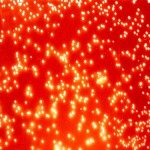Lien vers Pubmed [PMID] – 31171794
Lien DOI – 248810.1038/s41467-019-10380-0
Nat Commun 2019 Jun; 10(1): 2488
Listeria monocytogenes (Lm) is a major human and animal foodborne pathogen. Here we show that hypervirulent Lm clones, particularly CC1, are strongly associated with dairy products, whereas hypovirulent clones, CC9 and CC121, are associated with meat products. Clone adaptation to distinct ecological niches and/or different food products contamination routes may account for this uneven distribution. Indeed, hypervirulent clones colonize better the intestinal lumen and invade more intestinal tissues than hypovirulent ones, reflecting their adaption to host environment. Conversely, hypovirulent clones are adapted to food processing environments, with a higher prevalence of stress resistance and benzalkonium chloride tolerance genes and a higher survival and biofilm formation capacity in presence of sub-lethal benzalkonium chloride concentrations. Lm virulence heterogeneity therefore reflects the diversity of the ecological niches in which it evolves. These results also have important public health implications and may help in reducing food contamination and improving food consumption recommendations to at-risk populations.




